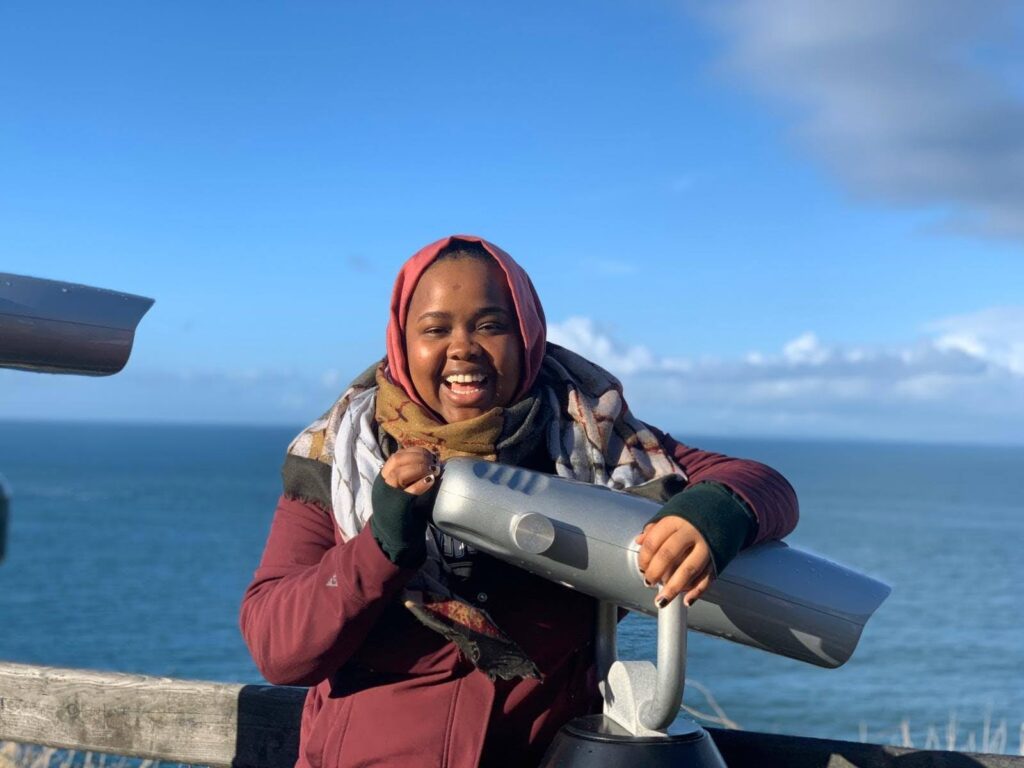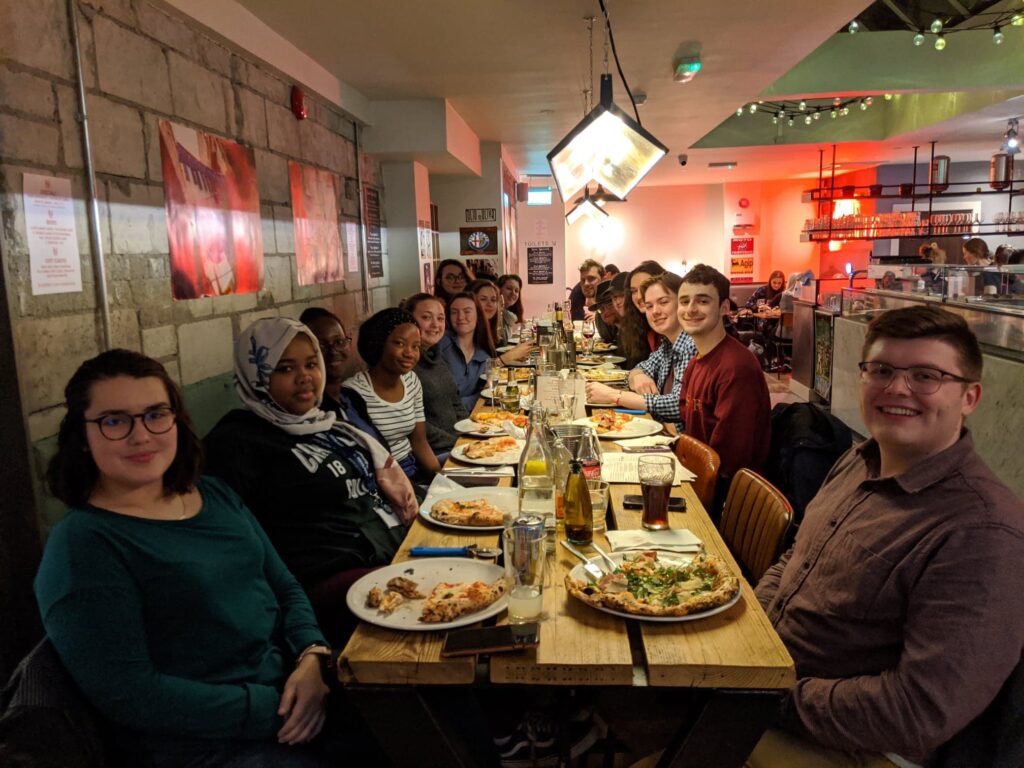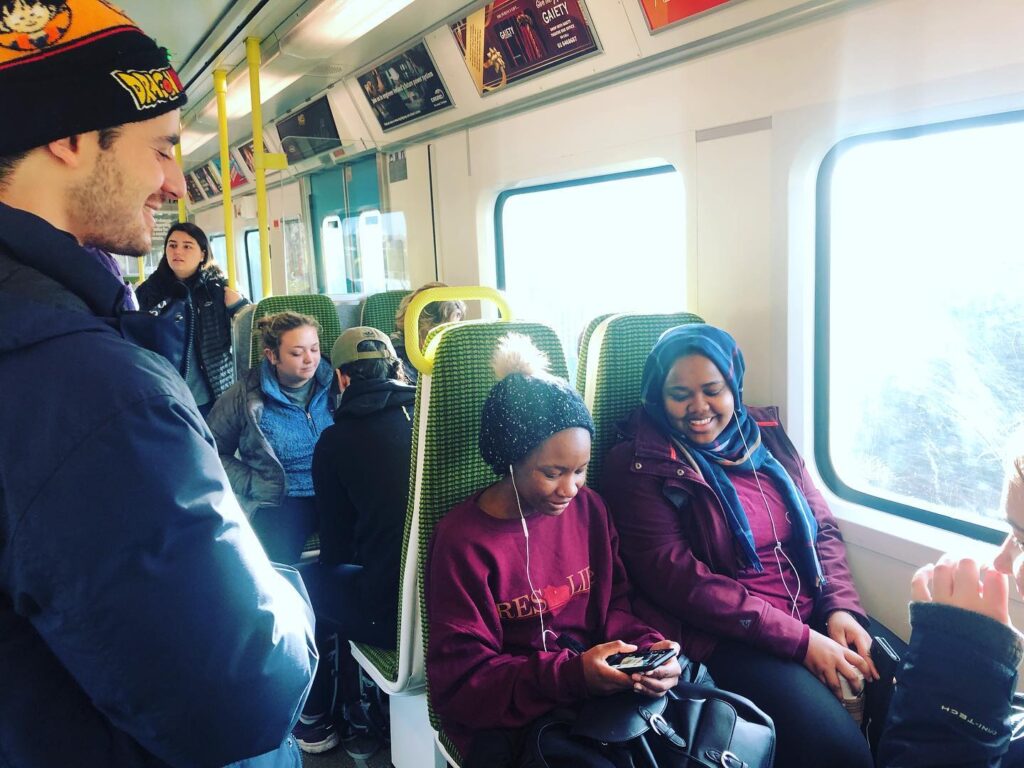Studying Abroad has been something that many students of color are interested in but sometimes never really explore because of many misconceptions. These students feel they cannot afford it or are scared of the racial atmosphere in these foreign countries. So, Champlain Abroad student worker Muna Arbow interviewed Hawa Adan, a Champlain College alum who studied abroad in Dublin, Ireland. Hawa talks about her experience traveling abroad dealing with fears, finances, mental health, race, etc. Hawa’s words serve to help students better understand how studying abroad actually is from a student of color’s perspective. And understand that studying abroad is for them just as much as it is for their other peers.

What should a person of color expect when traveling abroad?
Honestly, I believe BIPOC identifying people should keep the same expectations no matter where they go in the world. Racism, discrimination, and prejudice are present all across nations. I think that BIPOC travelers who live in the United States will find that cultural and societal norms/mindsets about race vary. In my experience, Irish folks don’t avoid talking about uncomfortable topics like race, racism, politics, etc. It was actually kind of refreshing because I feel that in the US and even on campus, discussions about all those topics are always so heated and awkward. In Ireland, I didn’t feel like people were “walking around eggshells” when it came to conversations about race, prejudice, justice, politics, etc.
What fears did you have studying abroad? How did you overcome these fears?
The biggest fears I had about studying abroad were being able to stay within my budget and pushing myself out of my comfort zone and exploring. I was traveling to a foreign country without family for the first time and that brought on a lot of anxieties that I did not expect. But I was also traveling with a close friend, MJ, she was a piece of home that I had with me in Ireland. She was a great help when it came to testing my comfort zone. We explored and traveled together. I encourage traveling to everyone and especially with someone you know you can trust who will understand your anxieties and help you face them.
The budgeting issue was a big fear because I always perceived that studying abroad was for people wealthier than me. Once I looked into the scholarship and funding options available to me I made sure to take advantage and advocate for as much aid as possible. I also made sure to keep track of spending habits the first couple of weeks to figure out how much things would cost weekly. I tracked grocery, transportation, eating out, etc. The Dublin faculty and staff were also great resources that helped us understand the exchange rate and where/when the best places were to convert our money.
How was your mental health?
My mental health was actually the best it had been in a while. I did have anxieties about living in an unfamiliar country but I was able to create some sense of community with friends, student cohort, and faculty/staff. When I reflect on my time in Dublin it stands out as being a big part of my personal growth – it was something that brought on a lot of anxieties and it was worth all the stress/anxiety.
Social issues? What were some of the differences between your destination and the US? How was your race/ethnicity looked at?
I think the biggest difference I recognized was the attitude difference when it came to race, ethnicity, and all other social issues. Irish people seemed more educated and interested in American politics than most Americans. I think at the time everyone was interested in American politics because of Trump’s presidency. The attitude difference is what I mentioned earlier – Irish folks will not walk around on eggshells or try to protect your feelings when in conversation. There were also very few people who wanted to “play the devil’s advocate”. I believe Ireland’s social and political history is what allows for the attitude/approach to these discussions in a way that is different from what I have experienced in the US.
Misconceptions about studying abroad as a student of color?
The biggest misconception that I bought into was that only people wealthier than myself could travel abroad. I think a lot of people believe this as well. Studying abroad always seemed like a luxury that I could not afford. While there is some truth to this stereotype – it should not prevent anyone from trying. There are many resources available that can make the financial aspect of traveling easier. I encourage all students to speak up about their concerns about financial aid to the Champlain Abroad office and financial aid. I was able to afford a lot more than I anticipated and that’s because of the steps that I took to ensure that I would be financially secure for anything that came up.

Was your experience different than what you imagined it to be?
Yes and no. I made sure to prepare myself and research anything that I would stress about. I asked all the questions that I had so that I could feel secure enough to live abroad for a semester. I wanted to feel prepared before I even stepped on the plane and I was.
I did not expect to connect with so many students from my cohort. Our housing cohort gave me the opportunity to connect and become friends with people I didn’t even know attended Champlain. The entire 2021 group was really great and I am grateful for all the memories.
Even with all the preparation, no one could have prepared for the pandemic. If I could change anything – it would be the Covid.
How would you encourage someone who looks like you and is less inclined to study abroad?
I would encourage someone who looks like me to communicate and reassure your parents. Studying abroad is not something that is not a cultural norm. It is a western cultural norm. When I brought up the idea of studying abroad I knew my parents would express their concerns and fears. I reassured myself and my parents by doing my research and preparing as much as I could. This might apply only to my parents but I planted the idea in their minds 2 full semesters before I was planning to travel and I would bring it up a couple of times each month. I also kept them in the loop of the entire process – I knew that my parents wanted to know that I knew what I was getting myself into. If you approach it this way – I think it will be easier to convince your non-western parents.
How was the environment in your destination?
Ireland is a beautiful country and Dublin is a busy city. The weather was similar with slightly more rain. Our housing was located in a historically significant neighborhood known as the Liberties. We had most of our needs conveniently located – food, transportation, banks/ATMs. There are locally-owned shops that give us student discounts and all the owners are so welcoming and helpful to Champlain students.
What were the perks?
The best perk that the Dublin program offered was that all my financial aid was able to transfer over.
The staff plan some trips and activities for students. This was a nice perk because we didn’t have to research or plan, the cost was usually lower, and it was a fun way to explore different parts of Ireland.
I was able to travel to London for a weekend for very cheap. Traveling to other countries was a nice perk because flights were usually cheaper and the staff supported students who want help planning trips.
What are things you knew before studying abroad as a student of color?
Using the resources and information that Champlain Abroad provides is a really smart way to prepare for any study abroad trip.

What are some of your most memorable experiences while studying abroad as a student of color? What are some of your most memorable experiences while studying abroad?
The entire cohort took a trip to Belfast, Northern Ireland for a couple of days. It was a fun weekend that happened right before Covid kicked us out. We visited significant historical sights like pieces of the peace wall and Giant’s Causeway.
My internship was a great learning experience. I was interning at a local after-school program supporting elementary and middle age kids.
My first solo trip to London is a great memory.
Activity suggestions?
Go on all the planned trips that the Dublin staff prepare. The staff prepares low-cost trips for students to explore different parts of Dublin and Ireland. This is a great way to explore because you are with people you know, a trusting staff who planned, and you get to experience something new. I remember my favorite trips being to Northern Ireland and smaller activities.
